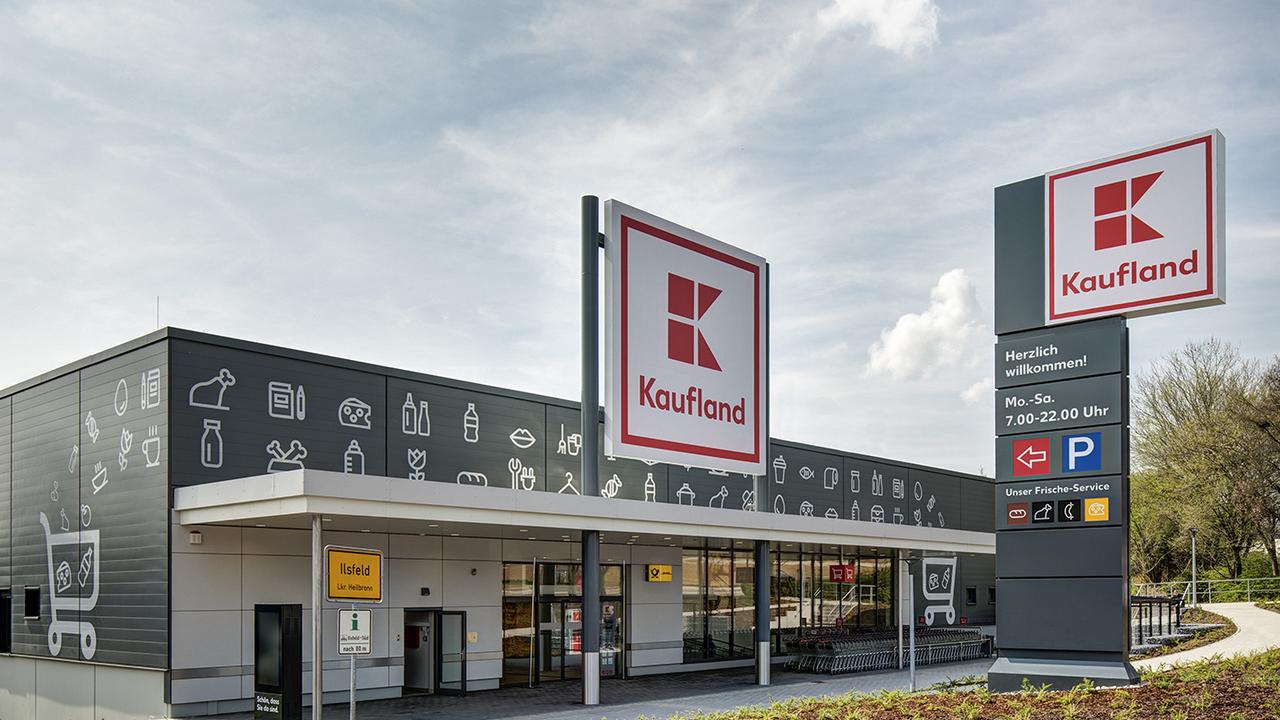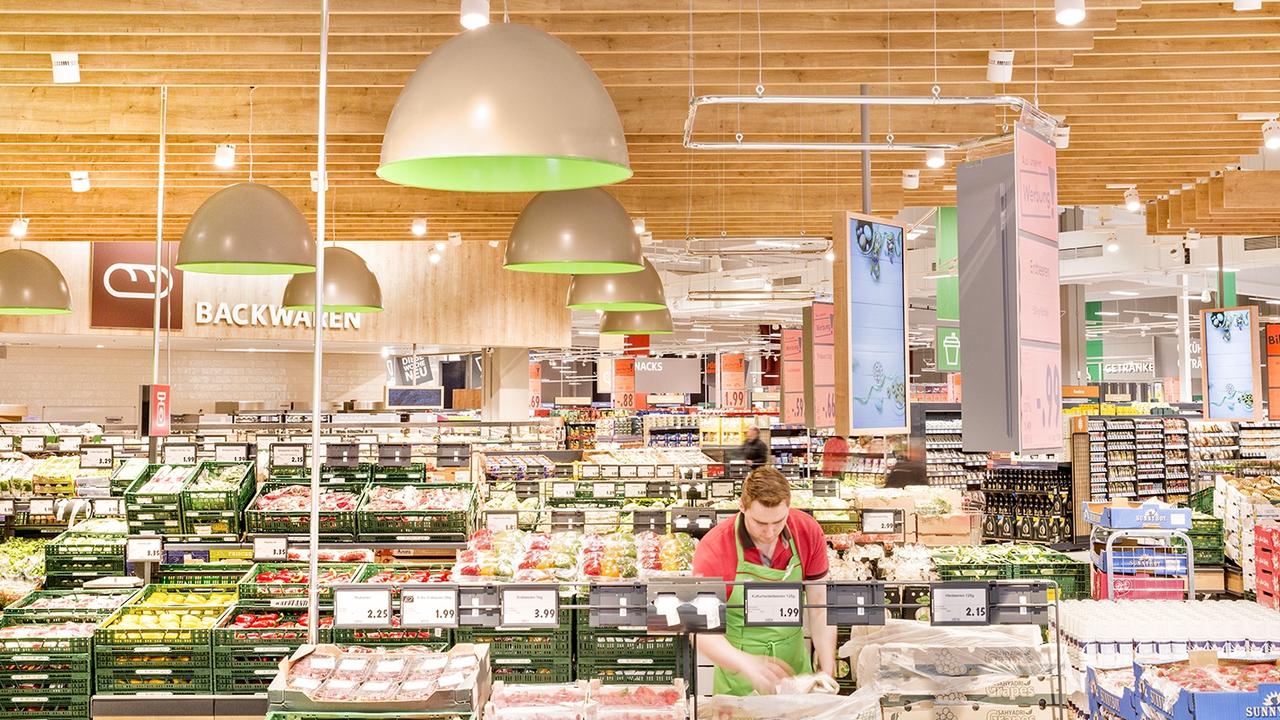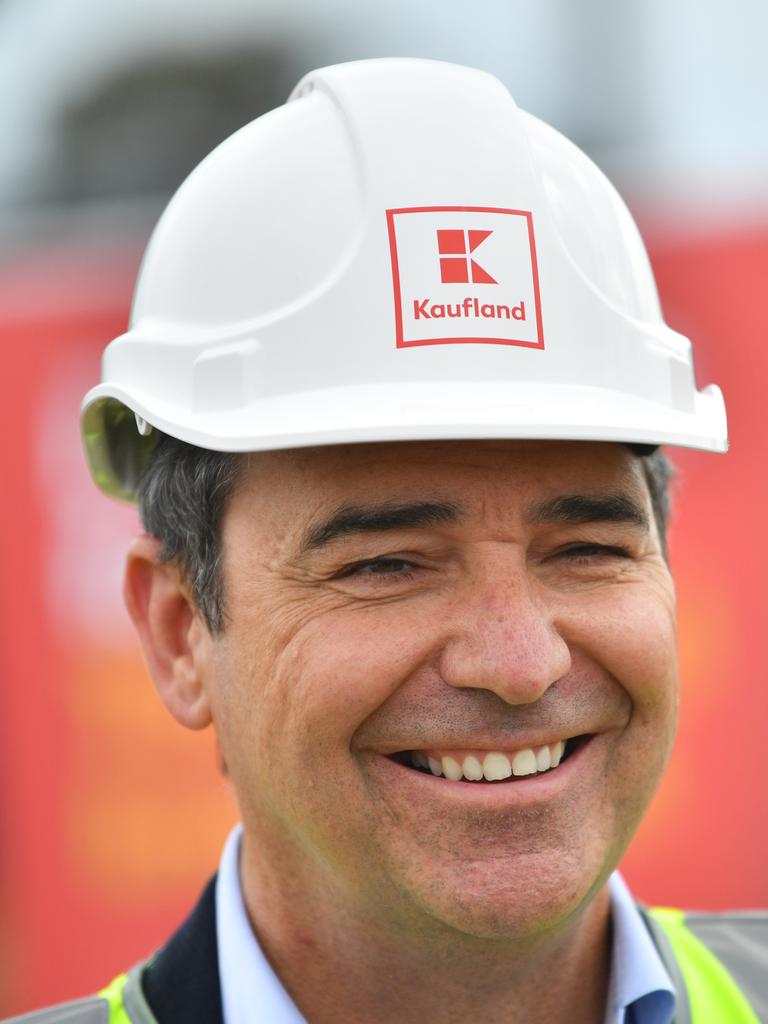Experts reveal why Kaufland sensationally pulled the pin on Australia
It was touted as an “Aldi killer” that would shake up our grocery sector – before it sensationally pulled the pin. So what really went wrong?
Australia’s retail industry is reeling following the shock news German grocery giant Kaufland’s ambitious plan to take on the local market has catastrophically collapsed.
The multibillion-dollar European supermarket chain announced details of its aggressive Aussie expansion plan in 2019, leaving local retailers nervous.
Just months ago it was forging ahead with nine confirmed sites in Victoria and a number of others earmarked for South Australia, with an initial total of 20 set to open.
Kaufland Australia managing director Julia Kern had pledged the brand would pour half a billion dollars into Victoria, where it was set to be based, and the state government expected Kaufland to create up to 2400 jobs.
It has reportedly invested as much as $500 million into Australia already, including a
a $255 million distribution centre in Melbourne which was in the middle of construction and a $24 million store in South Australia.
And it had already recruited 200 Aussie staff members who have now been left in the lurch, with a job listing for area managers posted in September 2018 boasting a “$171,000 Package + BMW + Career Progression!”.

Today those ambitious plans are in ruins, with the company confirming the sudden withdrawal in a statement yesterday.
“This decision is about focusing business activities in Europe and is in no way a reflection of the efforts of our local employees or management, or the support Kaufland has received from the Australian business community or governments,” the statement reads.
Kaufland International acting CEO Frank Schumann also issued an apology for the disruption, and said the chain had to focus on its traditional market.
“We always felt welcome in Australia. We would like to thank our employees and we apologise for the disruption this decision will cause,” he said.
“In Europe, we see a great deal of growth potential. We will actively shape the consolidation of the European retail sector, thus further reinforcing our leading position,” he said.
But what really caused this epic, multimillion-dollar flop?
AUSSIE FACTORS
Queensland University of Technology retail expert Dr Gary Mortimer told news.com.au Kaufland’s decision was unprecedented and had stunned the local industry.
“I can’t think of one global retailer that has entered a marketplace, spent close to $500 million, engaged with state government, employed 200 staff and set aside funds for a distribution centre only to pull the pin at the last moments,” he said.
“They were certainly serious about entering the market but conditions really deteriorated in the last two to three years in terms of the return on investment they calculated probably five years ago.
“I think this decision just goes to show how challenging the Australian food and grocery market is to access.”
Dr Mortimer said one of the biggest challenges Kaufland faced Down Under was finding suitable locations for its sprawling hypermarkets, as well as the distribution of goods across the vast continent.
He said access to a supply of fresh produce had already been affected by environmental factors like the drought and bushfires and that supermarket behemoths Coles and Woolworths had increasingly locked in long-term contracts with suppliers in recent years.

“They looked at Aldi and thought Australia was an attractive market but we’ve seen certain supermarkets invest heavily in products and reinventing stores and online offers, we’ve seen Kmart grow from strength to strength … as they’ve gone to launch they’ve realised prices are going up, the tyranny of distance is a challenge and a potential return on investment was going to take a lot longer than anticipated to materialise,” Dr Mortimer said.
“They really needed 40 to 50 stores to make the business viable and at least two more distribution centres in Sydney and Brisbane.”
But at the end of the day, he said the impact on consumers would be minimal.
“Less competition in the market is never a good thing for consumers but I don’t expect to see prices rise considerably in the marketplace, and I still think there’s relatively good competition in our supermarket and discount department store sector,” he said.
INSIDER SPEAKS
Ritchies Supermarkets CEO Fred Harrison told news.com.au he assumed numbers were crunched internally which indicated Kaufland should “cut and run”.
“It’s fair to say this was totally unexpected and came as a total surprise – we were blindsided and gobsmacked,” he said.
“When they first started talking about coming to Australia I thought they might pull out at the eleventh hour but you don’t expect it once they start to build and develop sites and put real money in.”
But Mr Harrison said the company likely discovered the cost of developing sites and hiring staff was higher than expected, and that a loss of $500 million now might have ended up saving the business “billions and billions” down the track.
“I think they weren’t going to be able to get the scale they needed quickly enough to get a return – it might have taken them six, seven, eight years and perhaps they weren’t prepared to wait that long,” he said.
“The Australian market by world standards is small and we’re a massive piece of land with a small population. Australia is a great country but it’s an expensive one and they might have underestimated the logistics,” he said.
Mr Harrison said if Kaufland had expected to enter Australia and “wipe the floor” with competitors they were wrong, as we had some of the world’s best supermarket retailers here already.
“I think common sense has prevailed,” he said.

DWINDLING PROFITS
But Brian Walker, who runs the Retail Doctor Group consultancy, said he believed the exit had more to do with conditions in Europe than Australia.
“Kaufland in Europe has 1200 units – it is a multibillion-dollar business, but its last trading results were disappointing and growth is flattening – at 1.4 per cent growth it was well below the previous year, so the first factor was that Kaufland was underperforming in the very competitive European grocery market, and they want the business to get back what was lost,” he said.
“Even if there were 100 stores in Australia it would still only be 1.5 per cent of total network so quite frankly, Australia is just a distraction in that context in the broad scheme of things.”
Mr Walker said the decision to leave was coupled with Australia’s notoriously tough current retail climate, but that local conditions wouldn’t have been enough to “dissuade” Kaufland on its own.
“It’s a scale question. Globally speaking, Australia is quite an outpost for a business like Kaufland,” he explained.
“So why did they make the decision (to enter) in the first place? My guess is they looked closely at Aldi’s success and thought they could bring more competition into the market, as well as getting a lot of incentives from the Victorian government to be there.
“They are the only two possible reasons they would even entertain the thought and the withdrawal is absolutely a consequence of scale, because they wouldn’t have been able to deliver anything near what they needed to deliver.”
Mr Walker said he believed Kaufland found Australia more “challenging” than expected.
“It’s a company with long pockets, but the money is also finite and there’s only a certain amount of resources,” he added.
News.com.au contacted Kaufland for comment.




